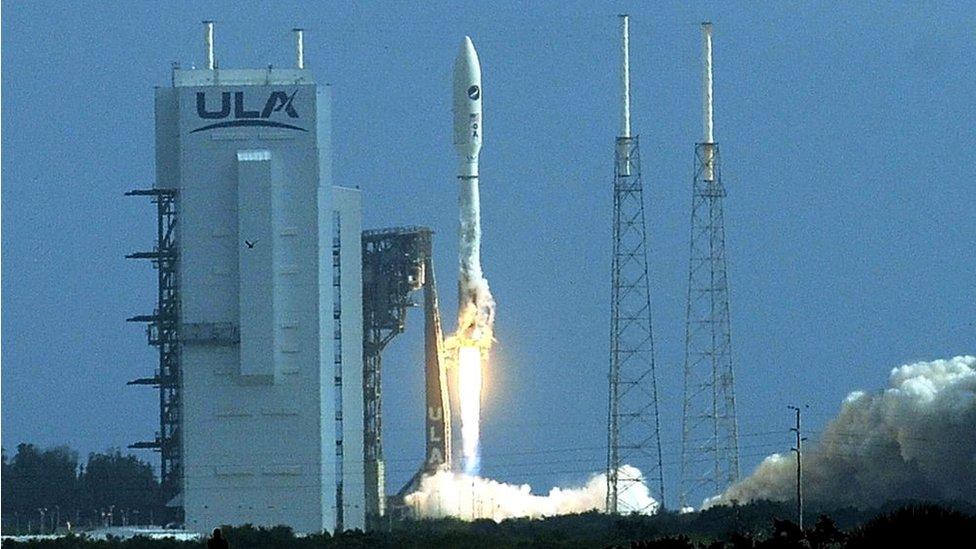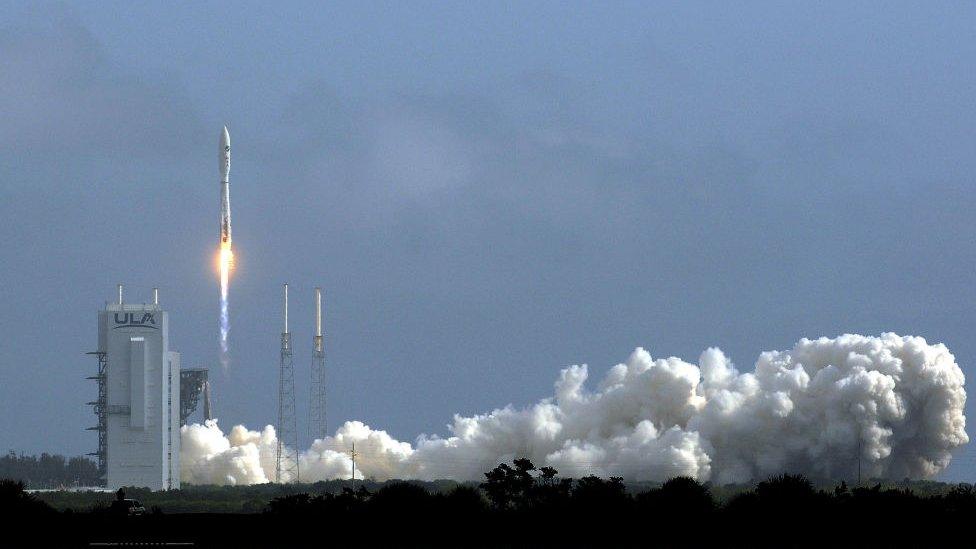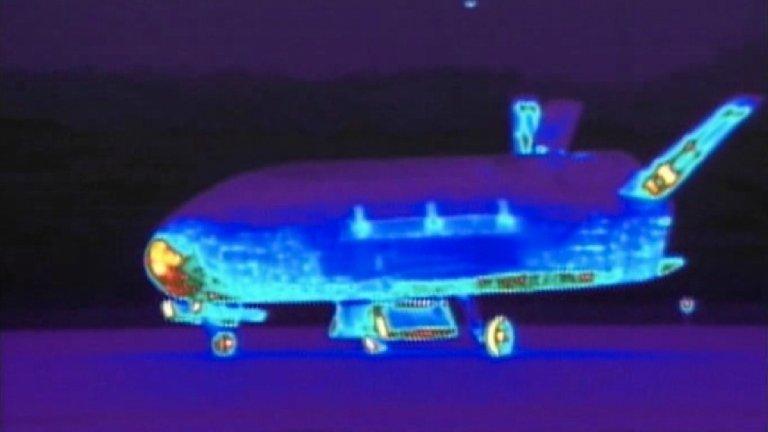Space Plane: Mysterious US military aircraft launches
- Published

The Atlas V rocket launched from Cape Canaveral on Sunday
The US Air Force has successfully launched its Atlas V rocket, carrying a X-37B space plane for a secretive mission.
The rocket launched on Sunday from Cape Canaveral, a day after bad weather halted plans for a Saturday launch.
The aircraft, also known as an Orbital Test Vehicle (OTV), will deploy a satellite into orbit and also test power-beaming technology.
It is the plane's sixth mission in space.
The launch was dedicated to front line workers and those affected by the pandemic. A message including the words "America Strong" was written on the rocket's payload fairing, external.
X-37B is a classified programme and United Launch Alliance, which operates the Atlas rocket, was required to end its webcast earlier in the flight than it would normally do.
The Pentagon has revealed very few details about the reusable vehicle's missions and capabilities in the past, but Secretary of the Air Force, Barbara Barrett, said earlier this month: "This X-37B mission will host more experiments than any other prior mission."
It's known that one of the onboard experiments will test the effect of radiation on seeds and other materials.

The X-37B programme is classified and very little is known about previous missions
The X-37B programme started in 1999. The vehicle (the project has two) resembles a smaller version of the crewed space shuttles that were retired by the US space programme in 2011. It can glide back down through the atmosphere to land on a runway, just as the shuttle did.
Built by Boeing, the plane uses solar panels for power in orbit, measures over 29ft (9m) long, has a wingspan of nearly 15ft and a weight of 11,000lbs (5,000kg).
The first plane flew in April 2010 and returned after an eight-month mission.
The pictures, released by 30th Space Wing, give little away about the plane's purpose
The most recent mission ended in October 2019, after 780 days in orbit, bringing the X-37B programme's time in space to more than seven years.
The length of this latest mission is currently unclear.
- Published17 October 2014

- Published5 January 2012